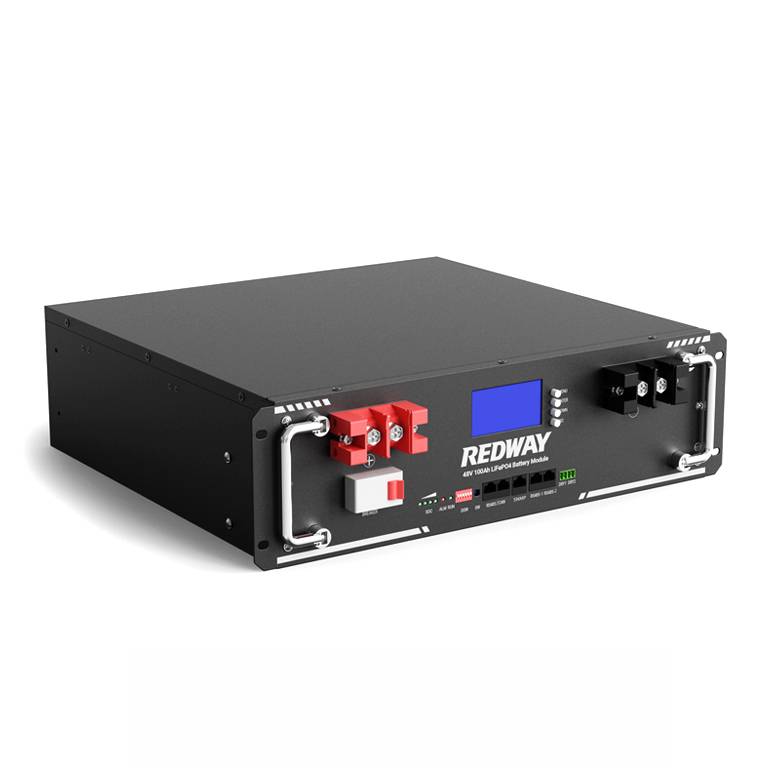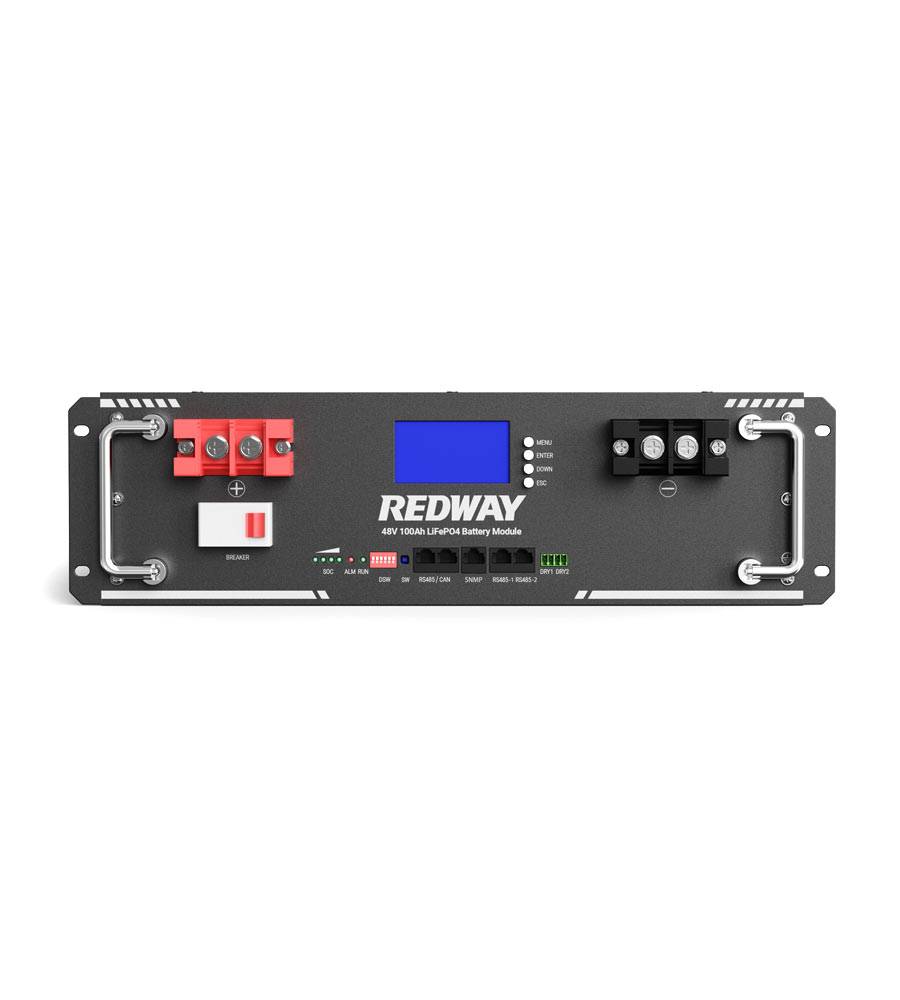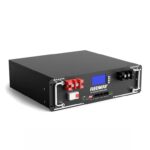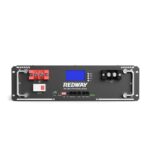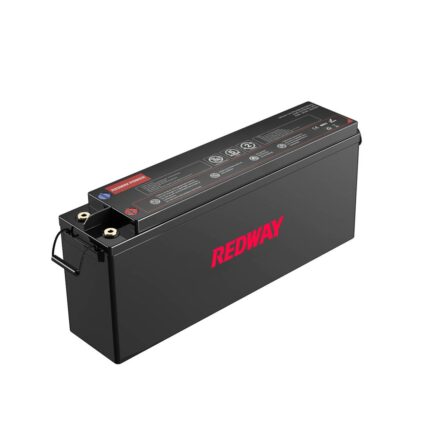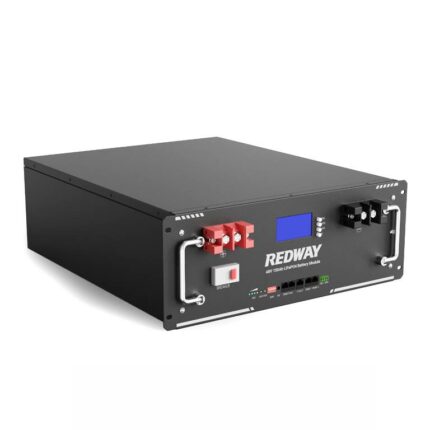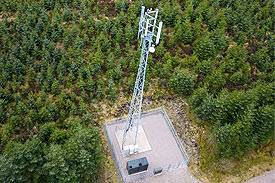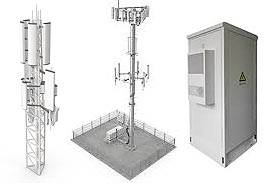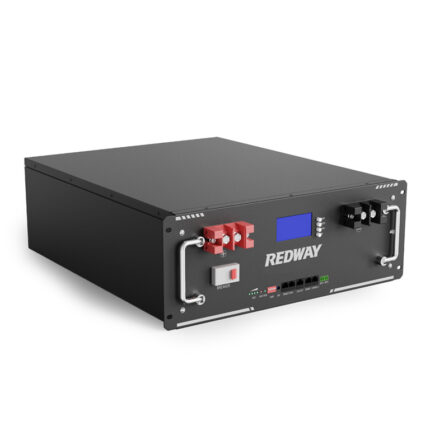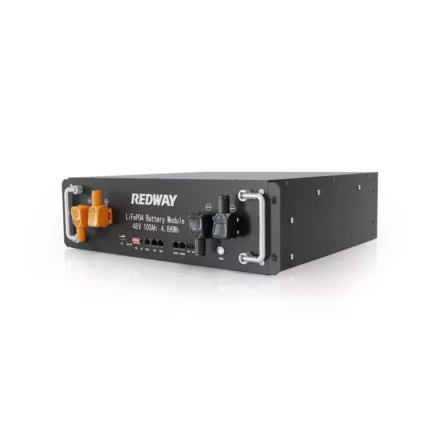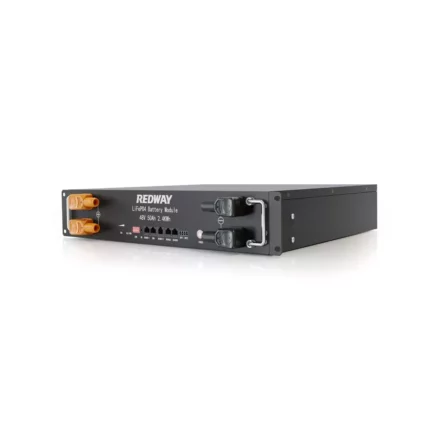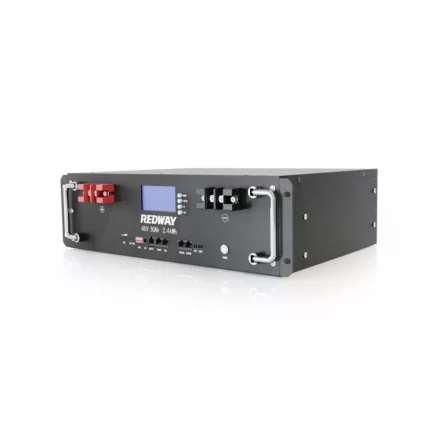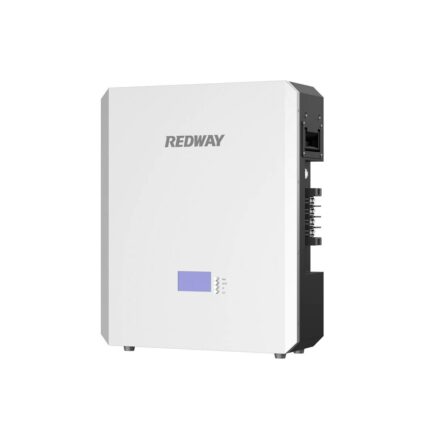What is the nominal voltage and capacity of the PM-LV48100-TELECOM battery?
The battery has a nominal voltage of 48V and a capacity of 100Ah.
What is the cycle life of the PM-LV48100-TELECOM battery?
The battery offers over 8,000 cycles at 80% Depth of Discharge (DOD).

What temperature range can the PM-LV48100-TELECOM battery operate in?
It operates efficiently in temperatures ranging from -20°C to 60°C.
What safety features are included with this battery?
The battery includes comprehensive BMS protections such as over-current, over-charge, over-discharge, short circuit, and thermal management.
Can the PM-LV48100-TELECOM battery be used in various environments?
Yes, it is suitable for dry indoor spaces, server rooms, data centers, telecom base stations, and more.
What is the self-discharge rate of this battery?
The self-discharge rate is less than 2% per month.

Is there a warranty for the PM-LV48100-TELECOM battery?
Yes, it comes with a 10-year warranty.
What types of inverters are compatible with this battery?
It is compatible with a wide range of inverters including brands like GROWATT, FOX, GOODWE, Victron, and many others.
What optional upgrades are available for this battery?
Optional upgrades include Bluetooth, WiFi, GPS, solar panels, and more.
Where can the PM-LV48100-TELECOM battery be used?
It can be used in telecom base stations, data centers, server rooms, warehouses, and other indoor environments.
How efficient are lithium batteries compared to lead-acid batteries?
Lithium batteries are more efficient than lead-acid batteries, with round-trip efficiencies around 90-95% compared to 70-85% for lead-acid. This means lithium batteries store and deliver more usable energy, making them more effective for energy storage and usage.
How does the usable capacity of lithium batteries compare to lead-acid batteries?
Lithium batteries can use 80-90% of their capacity without significant damage, while lead-acid batteries are limited to about 50% to avoid shortening their lifespan. This higher usable capacity means lithium batteries provide more usable energy.
What are the important terms to know when understanding battery ratings and terminology?
Key terms include:
- Nominal Voltage: Average operating voltage.
- Capacity (Ah): Total charge storage.
- Depth of Discharge (DOD): Percentage of capacity used.
- Cycle Life: Number of charge-discharge cycles.
- Round-trip Efficiency: Energy efficiency in cycles.
- State of Charge (SOC): Current charge level.
How can one read the data sheets for lithium batteries?
To read a lithium battery data sheet, check:
- Electrical Characteristics: Voltage, capacity, and charge rates.
- Performance Specifications: Efficiency, temperature range, and DOD.
- Safety Features: Protections and thermal management.
- Physical Dimensions: Size and weight.
- Certification and Standards: Compliance details.
What is partial state of charge (PSOC) tolerance, and how does it affect lithium batteries?
Partial State of Charge (PSOC) tolerance allows lithium batteries to operate effectively at various charge levels without significant degradation. This flexibility enhances performance and lifespan, as they don’t require full charge-discharge cycles, making them suitable for applications with variable charge levels.
FAQs
How long will a 48V 100Ah battery last?
A 48V 100Ah battery can last approximately 5 to 10 hours, depending on the load. For example, a 100W load would run for about 10 hours, while a 500W load would last around 2 hours.
How many watts is a 48V 100Ah battery?
A 48V 100Ah battery has a total energy capacity of 4800 watt-hours (Wh) or 4.8 kilowatt-hours (kWh), calculated by multiplying the voltage (48V) by the capacity (100Ah).
What does 48V 100Ah mean?
A 48V 100Ah battery indicates a battery with a nominal voltage of 48 volts and a capacity of 100 amp-hours, meaning it can deliver 100 amps for one hour or a lower current for a longer period.
How many hours does a 100Ah battery last?
The duration a 100Ah battery lasts depends on the load. For instance, at a 50W load, it would last around 20 hours. Higher loads will reduce the duration.
Can a 100Ah battery run a fridge?
Yes, a 100Ah battery can run a small refrigerator for several hours, depending on the fridge's wattage. For example, a 100W fridge could run for approximately 10 hours.
How long will a 100Ah battery run 1000 watts?
A 100Ah battery at 48V can run a 1000W load for about 4.8 hours. However, this is under ideal conditions; efficiency losses may reduce this duration.
How many kWh is 100Ah in 48V?
100Ah at 48V equals 4.8 kilowatt-hours (kWh), calculated by multiplying the voltage (48V) by the amp-hours (100Ah) and dividing by 1000.
How many solar panels do I need to charge a 48V 100Ah battery?
To charge a 48V 100Ah battery, you typically need about 2-4 solar panels (300W each) to ensure adequate charging, depending on sunlight availability and charging efficiency.
What is 48V battery at full charge?
A fully charged 48V battery typically measures about 54.4V to 58.4V, depending on the battery chemistry (e.g., lithium-ion, lead-acid) and its configuration.
How many KW is a 48V battery?
A 48V battery system with a capacity of 100Ah can provide 4.8 kWh of energy, which translates to 4.8 kW of power for one hour.
How long will a 100Ah battery run a TV?
A 100Ah battery can run a typical 100W TV for about 10 hours. The actual duration may vary based on the TV's energy efficiency and other factors.
How much electricity does it take to charge a 48V battery?
Charging a 48V battery requires slightly more energy than its capacity due to inefficiencies. For a 100Ah battery, it may take around 5 to 6 kWh to fully charge.
How many watts is 48V 100Ah?
A 48V 100Ah battery can deliver a maximum of 4800 watts for one hour or a proportionate amount of power over a longer period, as per its amp-hour capacity.
What is the advantage of a 48V battery?
The advantages of a 48V battery include improved efficiency, reduced weight, enhanced safety, and greater power delivery compared to lower-voltage systems, making them ideal for various applications.
How fast can a 48V battery go?
The speed of a system powered by a 48V battery depends on the motor and vehicle type. Typically, e-bikes and scooters can reach speeds of 20 to 30 mph with a 48V battery.



